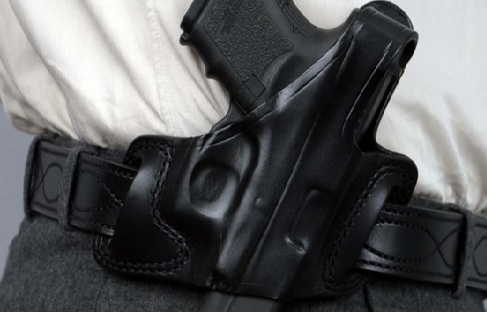Maryland Handgun Ruling a Victory for Second Amendment Supporters

There's never been a better time in America for gun rights advocates. Starting in 2008 with the U.S. Supreme Court's landmark Heller decision, continuing through 2010 with the McDonald case, and showing no signs of abating this Monday after the Woollard ruling was filed by a federal court in Maryland: in just a few short years the country has been swept with a wave of unprecedented court decisions that have amounted to nothing less than a revolution for gun rights and jurisprudence surrounding the Second Amendment to the U.S. Constitution.
Before jumping to Monday's Woollard ruling, which overturned some of Maryland's notoriously strict gun control policy, a brief review of the "Second Amendment Revolution" is in order. In District of Columbia v. Heller, which was decided by the U.S. Supreme Court in June 2008, the District of Columbia's ban on handguns was overturned as unconstitutional. Many Americans might be surprised to learn that as late as 2008, this was actually the first time in U.S. history that the Supreme Court decided whether or not the Second Amendment protects an individual's right to own a gun for self defense. It was a major milestone for gun rights advocates.
But Heller stopped short of striking down state and local prohibitions on guns. In its decision, the Supreme Court only went so far as to say that the federal government cannot violate the Second Amendment with gun prohibitions on federal enclaves (like the District of Columbia). Two years later, in June of 2010, the Supreme Court took the next step with its ruling in McDonald v. Chicago and "incorporated" the newly-minted individual right to own guns for self defense, meaning that this right would apply not only to the laws of federal enclaves, but to state and local governments. At the time, I wrote for the Independent Voter Network:
'In a flurry of other controversial rulings Monday, the Supreme Court overturned a Chicago gun ban as unconstitutional in the now landmark decision, McDonald v. Chicago. In doing so, the nation’s highest court took the unprecedented step of “incorporating” the Second Amendment right to keep and bear arms.“Incorporation” is the process by which the protections in the U.S. Bill of Rights- that is, the first ten amendments of the Constitution- are applied to state and local governments in addition to the Federal government for which they were originally intended. This means that states and local governments like California and San Diego are legally bound by the Second Amendment just like the Federal government is.'
Here we are not even two years after the McDonald ruling and a federal court in Maryland has expanded gun rights even further in the direction taken by America's highest court recently, with a ruling that the Second Amendment Foundation is hailing as a "monumentally important decision" and a "huge victory" for the Second Amendment. In Woollard v. Sheridan, the federal district court ruled Monday that the right to own a gun for self defense-- which was upheld in Heller, and incorporated to apply to the states by McDonald-- necessarily extends outside of a citizen's home, and that therefore citizens may not be required by state and local governments to offer a "good and substantial reason" for obtaining a concealed carry permit.
U.S. District Court Judge Benson Everett Legg asserted: "A citizen may not be required to offer a 'good and substantial reason' why he should be permitted to exercise his rights. The right’s existence is all the reason he needs."
And if, as the Supreme Court ruled in Heller (and as a plain reading of the Second Amendment would probably suggest to most people), American citizens do have an individual right to keep and bear arms, why should they have to offer a "good and substantial" reason to do so after all?
As Judge Legg should not have to point out, a right is something that-- by definition-- a person does not have to ask anyone's permission to exercise. If bearing arms is a right no differently than freedom of the press, then the government has as much authority to require a "good and substantial reason" for someone to bear arms as it does to require a "good and substantial reason" for them to tweet a political opinion or write an analytical news article on a new media website for independent journalism.
The day after the district court's ruling, The Baltimore Sun reported Tuesday that constitutional lawyers are saying the Woollard decision will likely be upheld on appeal.
There really has never been a better time in America for gun rights advocates.




